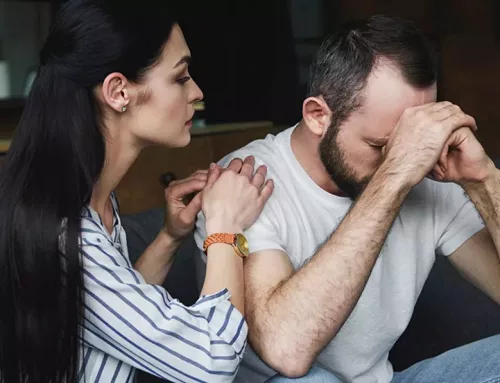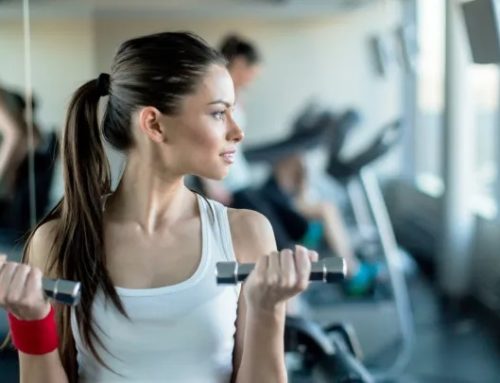A lot of adults have suffered from insomnia at some time in their life. Recent estimates have shown that 30 to 50% of person suffer insomnia and 10% of adults today have chronic insomnia, meaning it lasts longer than three weeks.
There is now good news for those that suffer sleepless nights. It is medication free and totally natural. Getting regular aerobic exercise increases the quality of sleep, mood and energy. That is what a small but important study conducted at Northwestern Medicine has found.
This is the very first study to analyze the outcome of aerobic exercise on middle-aged and older adults who have been diagnosed with insomnia. About 50% of persons middle-aged and up have complaints of insomnia.
The study trail of aerobic exercise concluded in the most impressive betterment of insomnia patients. Results in quality of sleep and length of time sleeping had improved and all without the aide of any medications.
Dr. Phyllis Zee, director of the Sleep Disorders Centers at Northwestern Medicine and senior writer of the paper to be published in the October issue of Sleep Medicine, stated this study is important to a large percentage of the populace. Research assistant professor in Feinberg, Kathryn Reed, was the head writer of the paper.
Dr. Zee states that as persons become older insomnia increases. Near the middle-aged years, sleep begins to alter severely. It is of vital importance that they determine behavior patterns so sleep can be improved. According to Dr. Zee, they now have encouraging results that demonstrate aerobic exercise is an easy plan to aide persons to improve their sleep and feel more energetic.
This natural method is very appealing due to the fact it removes any possible side effects of sleeping medications conflicting with any other medications a person could be taking according to Dr. Reid.
Sleep is an important aspect in a healthy lifestyle, just as nutrition and exercise are a part noted Dr. Zee, who is a professor of neurology, neurobiology and physiology at Northwestern University Feinberg School of Medicine and physician at Northwestern Memorial Hospital.
Dr. Zee, notes that by enhancing a persons sleep you also boost their mental and physical well being. Sleep is like an indicator of health, just like someone’s body temperature. If a person complains they are not sleeping well, it is known that they are in ill health with health issues like management of hypertension or diabetes.
The study included 23 inactive adults, mostly women 55 years old and older, who had problems falling asleep or maintaining sleep and diminished functioning in the day time. Women have the highest occurrence of insomnia. After a conditioning period, the aerobic group exercised for two twenty minutes sessions four times each week or one thirty to forty minute session four times a week. This was done for a length of sixteen weeks. The subjects had worked at 75% of their maximum heart rate on a minimum of two activities such as walking, treadmill or stationary bike.
Those subjects in the group without any physical activity had done recreational or educational activities such as cooking classes or attending museum lectures. These were in 45 minute sessions three to five times each week also for sixteen weeks.
Education about good sleep hygiene which includes sleeping in cool, dark, quiet rooms, maintaining same bedtime each night and not remaining in bed too long if sleep is not achieved, was given to both groups.
Exercise had enhanced the sleep quality as reported by each person, changing the diagnoses from poor sleeper to good sleeper. They also had reported more energy and less grogginess in the daytime.
Dr. Reid notes that better sleep gave them energy. The magic ingredient to get you up and moving and wanting to do things in the day.
The subjects score on the Pittsburgh Sleep Quality Index decline by an average of 4.8 points. In a past study using Tia Chi it had only declined 1.8 points.
Dr. Zee final comments are that exercise is good for the metabolism, weight management and cardiovascular health and now there is proof it is good for sleep.
It is usually recommended to exercise in the morning or afternoon hours at an average of 20 to 30 minutes, three or four times a week.
Just in case aerobics may not be your desired exercise here are a few more to help:
Walking for 15 to 45 minutes daily or almost daily has been noted to help persons sleep better.
Leisure exercises such as swimming, tennis, dancing and weight lifting.
Other alternative treatments for insomnia
Herbs and Supplements
Magnesium and calcium supplements have been demonstrated to improve fatigue.
Ashwaganda an Ayurveda herb know for its power to reduce stress levels.
Chamomile tea before bedtime acts like a sedative.
Wild Lettuce supplements in small amounts only it can cause death and breathing problems if used in large amounts. If you have allergies to ragweed or related plants, narrow angle glaucoma, enlarged prostate, pregnant or nursing do not use this product.
Acupuncture
Upon acupuncture treatments your nervous system begins to become calmer. Acupuncture aides in balancing your Qi, which when in balance cures the insomnia.
After the initial treatment it should allow you to sleep. However, if insomnia returns in a few days this is an indication you need more frequent treatments. The usual length is several treatments a few times each week until insomnia is totally gone.
Chiropractic Treatments
There have been studies done into the use of chiropractic treatments such as manipulations to aide in the relief of insomnia. Of the studies done it has shown insomnia improvements in many patients. Large scale research it still needed to be done on this area.
Massage Therapy
Massage therapy for years and years has been associated with improving stress in which in turns improves sleep quality. Clinical studies have shown that those persons who receive aroma massage therapy has aided in insomnia for some cases. Lavender is one of the more common recommended essential oils to use.
Alternative medicine in or around Detroit area:




